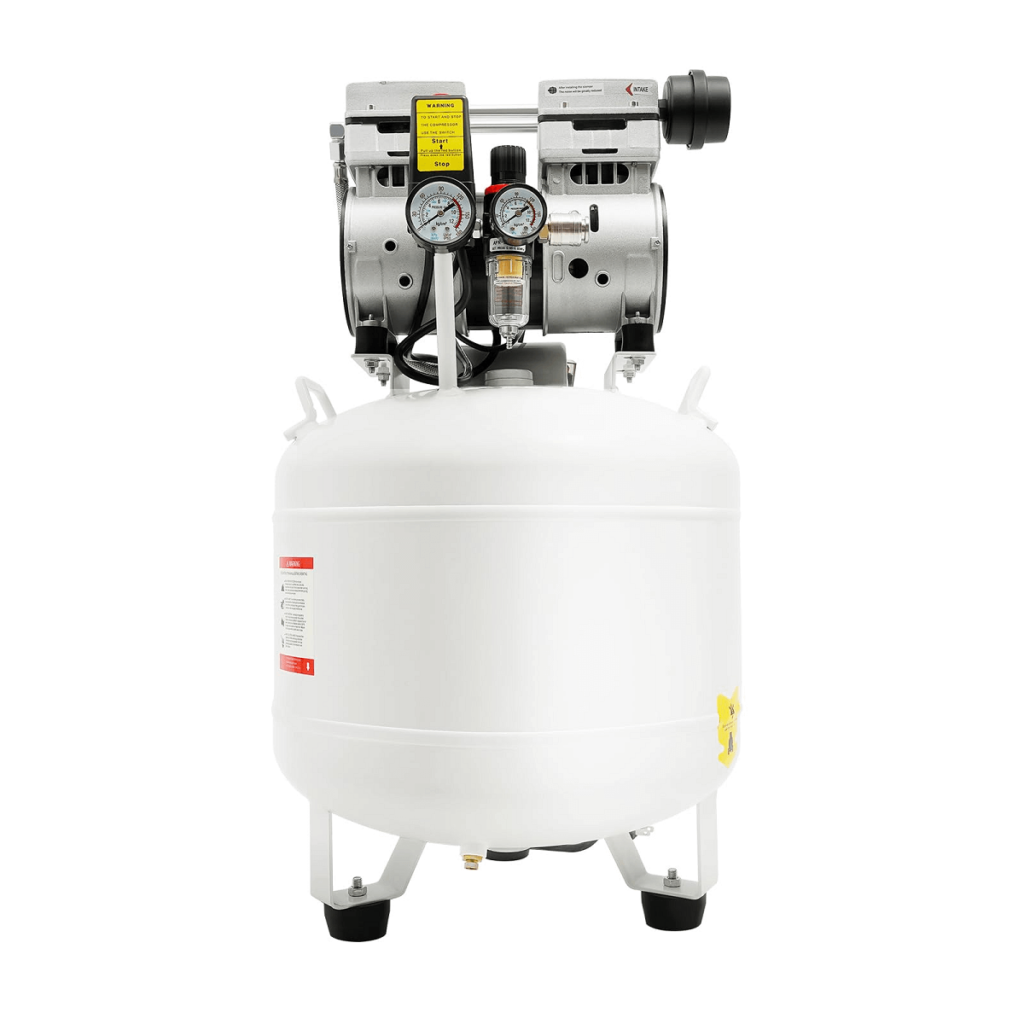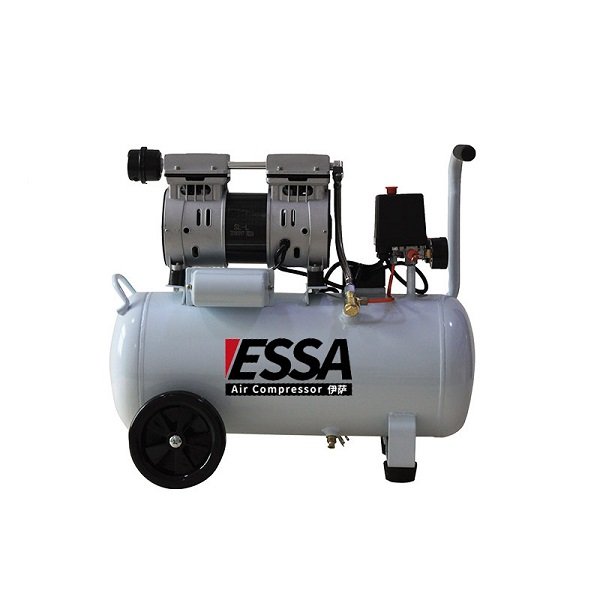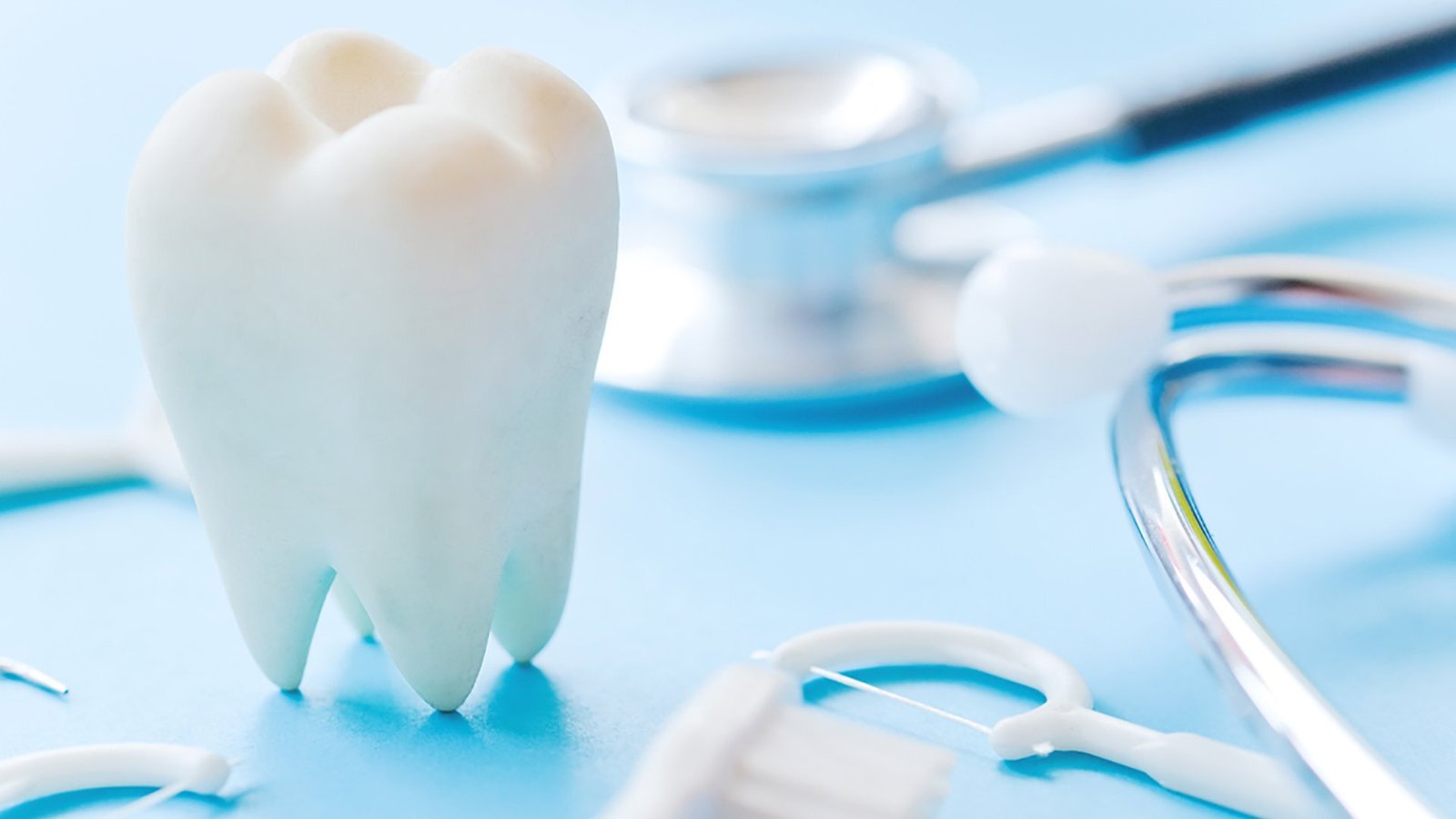Modern dentistry relies heavily on a dental air compressor, as it provides the clean, dry, oil-free air needed for effective and safe treatment. By investing in a high-quality dental air compressor machine, all the risks are eliminated, which protects the patients and ensures that dental tools function effectively. Knowing the types of dental compressors, the way they work , and their maintenance is necessary for a continuous and smooth practice. Although Aidite pays more attention to dental materials and digital equipment, quiet dental air compressors should be purchased from manufacturers that specialize in air systems for dental practice, otherwise, you will not get the maximum reliability and performance.

What are dental air compressors?
Quiet dental air compressors are specialized machines designed to generate and deliver clean, pressurized air to dental instruments. Compared to regular air dental compressors, these machines come with advanced filtration and drying systems to avoid contamination and moisture accumulation, protecting the safety of patients and increasing the life of dental tools.
Types of Dental Air Compressors
1. Oil-Free Dental Air Compressors:
These compressors are oil-free, which means you can manage a clean environment. Ideal for those practices where clean, contaminant-free air is required, including surgical and restorative procedures.
2. Oil-Lubricated Dental Air Compressors:
These compressors run on oil to lubricate the moving parts, extending their life and giving quieter operation. But they do need continual upkeep to avoid the oil carryover which can affect dental instruments.
3. Quiet Dental Air Compressors:
Built for a very quiet operation that increases patient comfort during procedures. The most common application is in clinics that want to establish a relaxing atmosphere.
4. Portable Dental Air Compressors:
These compressors are made to be mobile between operatories or for mobile clinics and are lightweight and compact. While they are typically less powerful than stationary units, they provide convenience.
5. High-Pressure Dental Air Compressors:
With a greater output of PSI, these compressors are best for dental jobs that require a strong and consistent airflow. These are most frequently used for oral surgeries and procedures requiring high-powered handpieces.
Features to Consider in Dental Air Compressors
So when you choose the very best quiet dental air compressors, here are a few core features for the best choices:
- Noise Level: Choose quiet dental air compressors to create a more comfortable and less stressful working environment for staff and patients alike.
- Quality of Air: Choose one that has high-performing filtration and drying systems, which lead to clean air with negligible contamination risk and more productivity.
- Oil-Free Technology: The air quality will be much better without oil contamination, so switch to an oil-free dental compressor to ensure that your air is free from any contaminants.
- Energy efficiency: Choose models that consume less electricity and thus help reduce operating costs at maximum performance.
- Airflow Capacity: Select a compressor with an adequate airflow capacity to enable simultaneous use of several Dental Tools without any performance-related issues.
Such marks the requirement of these attributes that will ensure the operational efficiency and hygiene required through your air compressor, thus improving patient care as well as practice efficiency.
Significance of Quality Dental Air Compressors
High-quality quiet dental air compressors are essential for safe, efficient dental practices, supporting patient care, staff comfort, and overall operations.
- Constant and Reliable Airflow: Provides a constant and steady flow of clean, dry air, avoiding any drops in performance during the use of dental tools.
- Advanced Moisture Control: These units remove moisture evenly, reducing bacteria and contamination for a sterile clinical environment.
- Improved Infection Control: Dental compressors provide dry, oil-free air that is essential in preventing contamination at the high levels of hygiene required in a dental practice to protect both patients and staff members.
- Extended Tool Lifespan: They prevent your more delicate tools from coming into contact with water and debris by using quality dental compressors
- Boosted Clinical Efficiency: Reliable airflow guarantees uninterrupted processes, free of delays, and improves overall workflow efficiency

Common dental air compressor problems and solutions
Whatever the best quiet dental air compressor is capable of, in due time, it could pass through performance issues. Finding and fixing these issues at the start ensures that the practice remains safe, efficient, and free from contaminants. Here is what you should know about their biggest flaws and ways to get rid of them:
- Low Air Pressure: Mainly for logged filters, worn gaskets, and covered holes. Prevent these issues with preventive measurements, and monitor filters, hoses, and connectors regularly.
- Weird Sound While Operating: Sounds like clunking or hissing; point out that the parts are either loose or damaged. Check for misalignment or bearing wear and fix it right away.
- Overheating: Clean the fans and filters, and make sure vents are not blocked due to poor airflow to avoid overheating, which is not only not as efficient but also very dangerous for the internal components.
- Air Leaks: The most common issue especially as the machine ages. Identify the leak points by performing a soap test on valves, hoses, and connections.
- Electrical Problems: The quiet dental air compressor won’t start or turn off. Inspect power cables, switches, and fuses. Faulty capacitors or pressure switches may need to be professionally replaced.
Key Benefits of Using a Dental Air Compressor
When investing in a high-end dental compressor, there are dozens of benefits you will enjoy as a practitioner and as a patient. Performance boost to ensure cleanliness. Here are the main advantages:
- Enhanced Safety and Infection Control: Oil free dental compressors offer clean, dry air and reduce procedures as well as contamination and infection risks.
- Enhanced Equipment Longevity: Clean and filtered air prevents the corrosion and wear of your dental handpieces, allowing your equipment to last longer, which helps reduce repair costs.
- Quiet Operation: Dental air compressor machines with low-noise models make a comfortable surrounding for both the patient and the staff.
- Energy Efficiency: High-quality dental dry compressors are solid, made of high-quality materials, have high power, and work at low energy, which reduces the electricity bill for you.
- Less Maintenance Needed: Minimal maintenance is needed because these oil free dental compressors do not need frequent oil changes, oil separation, or substitution of oil compartment parts.
- Higher Procedure Efficiency: An optimal compressor ensures that all air-driven instruments operate at peak performance, which further implies faster, steadier, and more successful procedures for your patients.

FAQs
Q1. How often do I need to maintain my dental air compressor?
Every 6 months, your dental dry compressor should have a service performed on it to improve performance, remove moisture build-up, and produce clean, dry, and oil-free air for every dental procedure.
Q2. What is the best dental air compressor for a small clinic?
The small clinic would benefit from a quiet, oil-free dental compressors with integrated filtration because they operate with little noise, require little upkeep, and are capable of providing you with clean, sterilized air.
Q3: Will air compressor moisture damage dental instruments?
Of course, moisture can cause corrosion of the tool, growth of bacteria, and loss of performance! By extracting moisture, dental dry compressors offer better hygiene, contribute to longer tool life, and, therefore, provide a better quality of treatment.
Conclusion
Top-quality dental air compressor machines are a key element of an efficiently, hygienically functioning dental practice. Getting the selection of dental technology is important There is a company such as Aidite that is consistent in quality, innovation, and reliability. In addition to that, routine maintenance guarantees a safe and comfortable workspace for dental professionals, which in turn increases their efficiency and improves the quality of service and patient care they provide. Hence, investing in some trusted dental air compressor machines would be an effective step forward.



